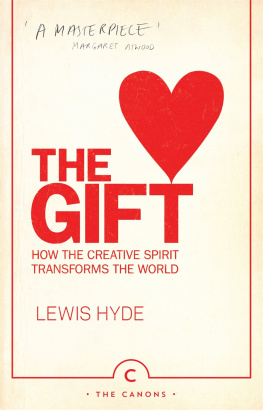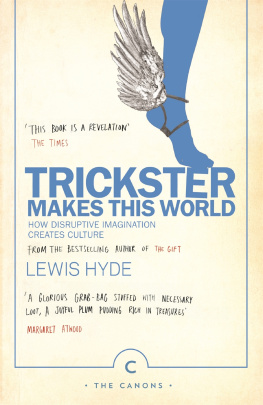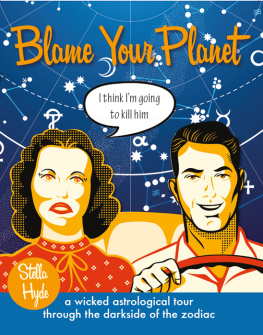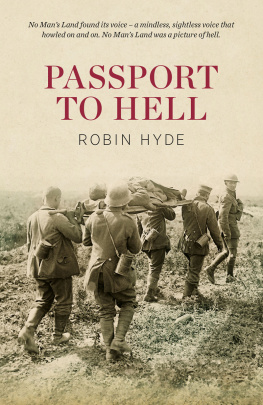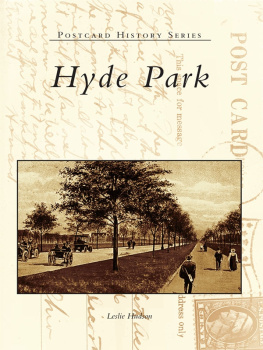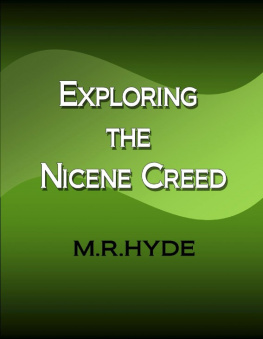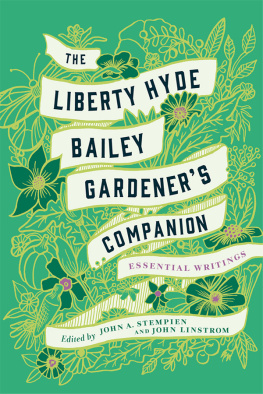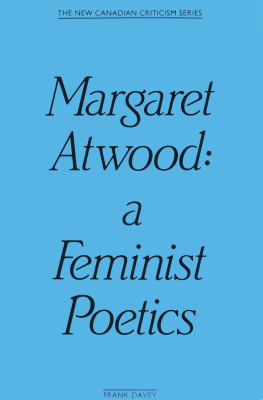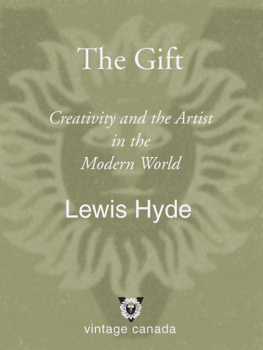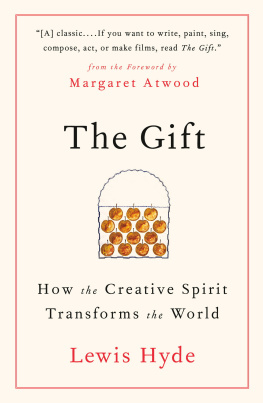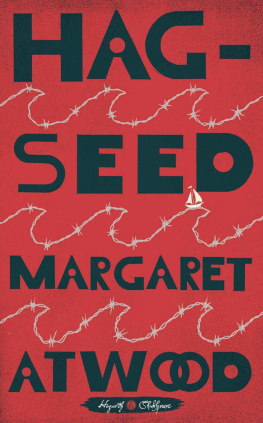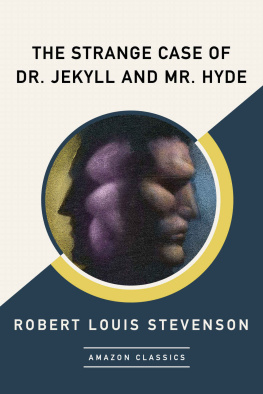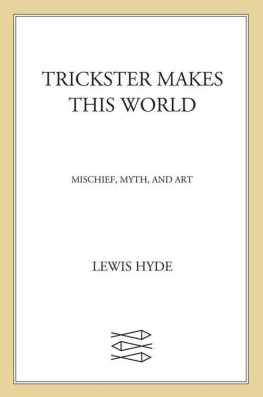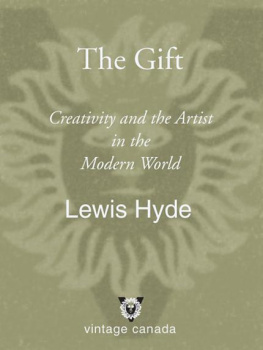Hyde - 1983;2006;
Here you can read online Hyde - 1983;2006; full text of the book (entire story) in english for free. Download pdf and epub, get meaning, cover and reviews about this ebook. City: Edinburgh, year: 1983;2006;2007, publisher: Canongate Books,, genre: Religion. Description of the work, (preface) as well as reviews are available. Best literature library LitArk.com created for fans of good reading and offers a wide selection of genres:
Romance novel
Science fiction
Adventure
Detective
Science
History
Home and family
Prose
Art
Politics
Computer
Non-fiction
Religion
Business
Children
Humor
Choose a favorite category and find really read worthwhile books. Enjoy immersion in the world of imagination, feel the emotions of the characters or learn something new for yourself, make an fascinating discovery.
1983;2006;: summary, description and annotation
We offer to read an annotation, description, summary or preface (depends on what the author of the book "1983;2006;" wrote himself). If you haven't found the necessary information about the book — write in the comments, we will try to find it.
Hyde: author's other books
Who wrote 1983;2006;? Find out the surname, the name of the author of the book and a list of all author's works by series.
1983;2006; — read online for free the complete book (whole text) full work
Below is the text of the book, divided by pages. System saving the place of the last page read, allows you to conveniently read the book "1983;2006;" online for free, without having to search again every time where you left off. Put a bookmark, and you can go to the page where you finished reading at any time.
Font size:
Interval:
Bookmark:
FOR MY PARENTS
What is good is given back.
Book salesmen find it handy to have a ten-second description of each title when they go into a bookstore to pitch the product. Any current list of bestsellers will provide a sample of the genre: Extraordinary conclusions about the lineage of Christ. Newspaper columnist learns life lessons from his neurotic dog. How the dead communicate with us. Reporter exposes a ring of vampires out to take over Seattle. Memoir by the bad-boy golf champion.
The Gift has always been hard to summarize in such pithy prose. In a way, that is its point: I began writing the book because it seemed to me that my own experience with the commerce of the creative spirit was nowhere very well articulated. Some explaining was in order and while perhaps it could have been done in less than 300 pages it surely couldnt be done in a sentence or even a chapter. This meant, however, that when it first came out the book was in fact an embodiment of the problem it addresses. Books that are hard to explain may, one hopes, be more useful in the long run, but they are also the harder to commodify for a ten-second sell.
The original editor for The Gift was Jonathan Galassi and I remember when we first sat and talked about the project he asked me the question all editors must ask, Who is your audience? I didnt know how to respond. I felt like saying All thinking humans but, made shy by my own grandiosity, I settled for poets. Thats not what most editors want to hear (many prefer dog owners seeking news of the dead). But it was poetry that had brought me to writing in the first place and it was in the poetry world that I could see most clearly the disconnect between art and the common forms of earning a living.
I was very lucky to have happened upon an editor willing to see if the audience might start with poets and move outward, and Ive been luckier still that in fact it has. That may have had as much to do with our historical situation as with the book itself. The commercial ethic that The Gift engages has not diminished in recent decades; quite the opposite. As the afterword to this edition explains more fully, I believe that since the 1989 fall of the Soviet Union, the West has undergone a period of remarkable market triumphalism. Weve witnessed the steady conversion into private property of the art and ideas that earlier generations thought belonged to their cultural commons, and weve seen the commodification of things that a few years ago would have seemed beyond the reach of any market. The loyalty of school children, indigenous knowledge, drinking water, the human genome its all for sale.
Whatever the link to recent history, the happy fact is that The Gift has managed to find an audience beyond the community of poets. Not too long after it came out, for example, I was asked to give a keynote address at the national convention of the Glass Arts Society; later I did the same for the Society of North American Goldsmiths. This was a nice surprise; it has turned out that artists in the craft community not just those working with glass and gold but cabinet-makers, potters, weavers, and other artisans have found the book useful, perhaps because artists who deal with actual physical objects feel most strongly the tensions The Gift describes. There has turned out to be a receptive ear in spiritual communities as well. I have spoken about the books themes at an Anglican Church in New York, an Episcopal Cathedral in San Francisco, and a Zen Buddhist monastery in the California mountains. More broadly, Ive had encouraging responses from historians, museum curators, landscape architects, Jungian analysts, agronomists, environmentalists, and more. Last year saw the first translation into Italian. A Chinese version is in the works.
This Canongate edition now promises finally to give the book a presence in the United Kingdom. For that I am very grateful, and Im grateful especially to Margaret Atwood who first brought the book to the attention of Jamie Byng at Canongate.
And if the salesmen want to pitch it as Bad-boy critic deploys magic charm against vampire economy, thats all right with me.
Lewis Hyde
Cambridge, Massachusetts
June 2006
by Margaret Atwood
Gifts pass from hand to hand: they endure through such transmission, as every time a gift is given it is enlivened and regenerated through the new spiritual life it engenders both in the giver and in the receiver.
And so it is with Lewis Hydes classic study of gift-giving and its relationship to art. The Gift has never been out of print; it moves like an underground current among artists of all kinds, through word of mouth and bestowal. It is the one book I recommend without fail to aspiring writers and painters and musicians, for it is not a how-to book there are many of these but a book about the core nature of what it is that artists do, and also about the relation of these activities to our overwhelmingly commercial society. If you want to write, paint, sing, compose, act or make films, read The Gift. It will help to keep you sane.
I doubt that Lewis Hyde knew while he was writing it that he was composing such an essential work. Perhaps he felt he was merely exploring a subject of interest to him in its short form, why poets in our society are seldom rich and enjoying the many tributaries he was uncovering through this exploration without realising that he had hit on a wellspring. When asked by his original editor who his presumed audience was, he couldnt really pinpoint it, but settled for poets. Thats not what most editors want to hear, as he says in his foreword to the 2006 edition. Many prefer dog owners seeking news of the dead. As he then tells us, the happy fact is that The Gift has managed to find an audience beyond the community of poets. This is an understatement of some vastness.
I first encountered both Lewis Hyde and The Gift in the summer of 1984. I was in the midst of writing The Handmaids Tale, begun in the spring in that combination of besieged city and consumer showcase that was West Berlin at the time, and where the twentieth-century clash between communitarianism gone wrong and Mammon-worship gone wild was most starkly in evidence. But now it was July, and I was in Port Townsend, Washington, at a summer school for writers of the kind that were then multiplying. In that secluded area, all was bucolic.
Lewis Hyde was also teaching at the summer school. He was a genial young poet whose hobby was lepidoptery, and he shyly presented me with a copy of The Gift. In it he wrote: For Margaret. Who has given all of us many things. I like the slipperiness and ambiguity of this many things could include anything from the poems and novels I hope he had in mind to a case of herpes and the heebie-jeebies for the word gift is itself slippery and ambiguous. Think of Greeks bearing gifts, a reference to the fatal Trojan horse, and the poisoned apple given to Snow White, not to mention that other apple given to Adam, and the wedding gifts that burn Medeas rival to the bone. The double-handedness of gifts is in part what Lewis Hydes book is about.
The Gift was first published in 1983, when it was originally subtitled Imagination and the Erotic Life of Property. On the cover of my 1983 Vintage paperback is a Shaker painting of a basket of apples a choice explained in a note by Hyde:
The Shakers believed that they received their arts as gifts from the spiritual world. Persons who strove to become receptive of songs, dances, paintings, and so forth were said to be labouring for a gift, and the works that they created circulated as gifts within the community. Shaker artists were known as instruments; we know only a few of their names, for in general it was forbidden that they be known to any but the church elders.
Font size:
Interval:
Bookmark:
Similar books «1983;2006;»
Look at similar books to 1983;2006;. We have selected literature similar in name and meaning in the hope of providing readers with more options to find new, interesting, not yet read works.
Discussion, reviews of the book 1983;2006; and just readers' own opinions. Leave your comments, write what you think about the work, its meaning or the main characters. Specify what exactly you liked and what you didn't like, and why you think so.

